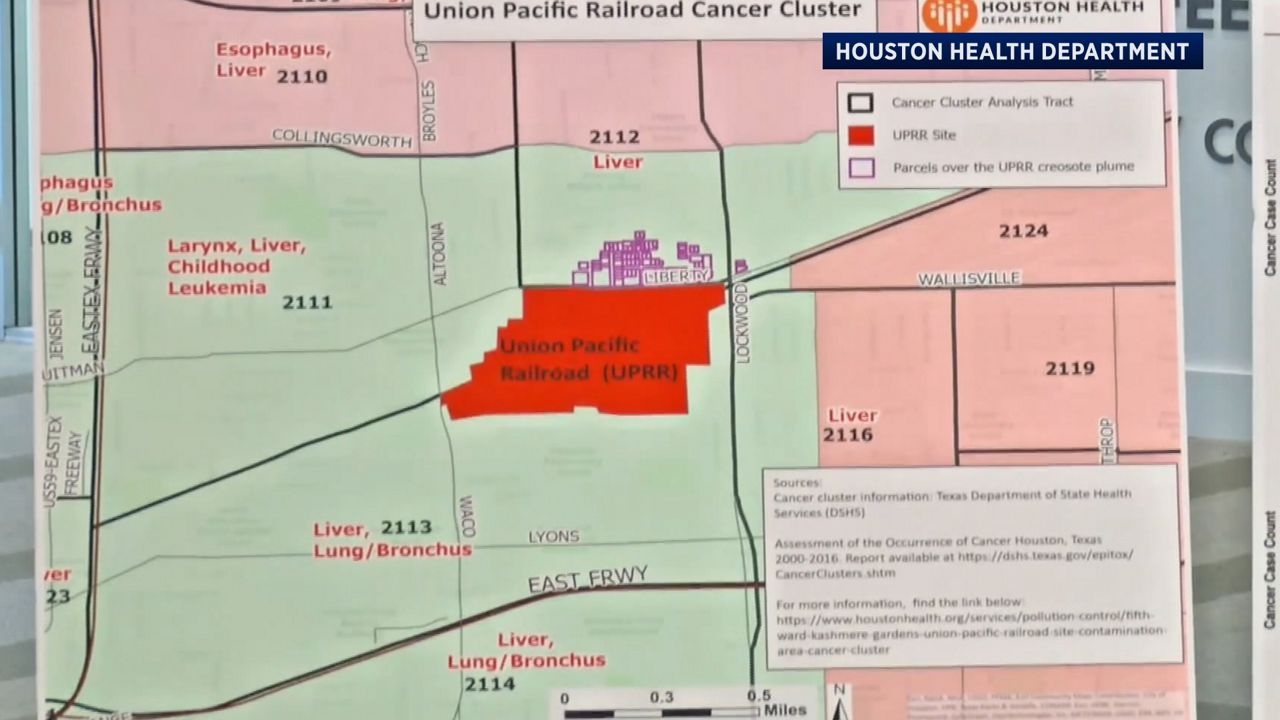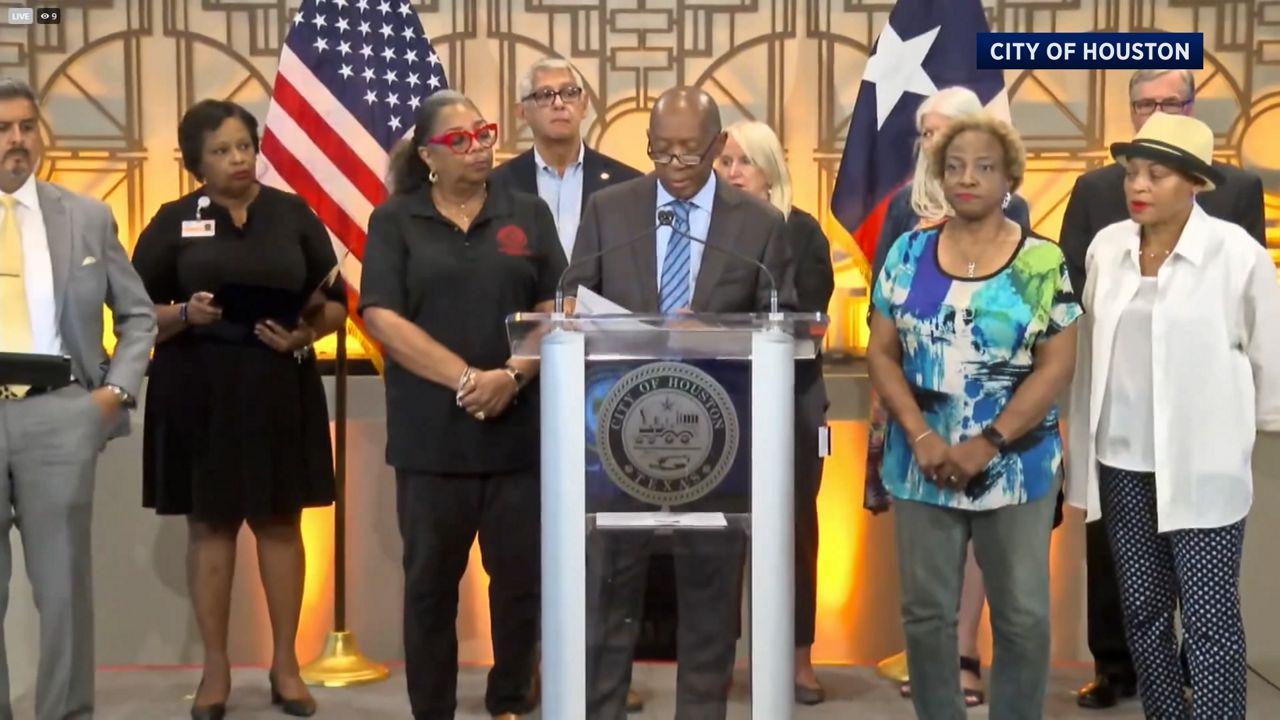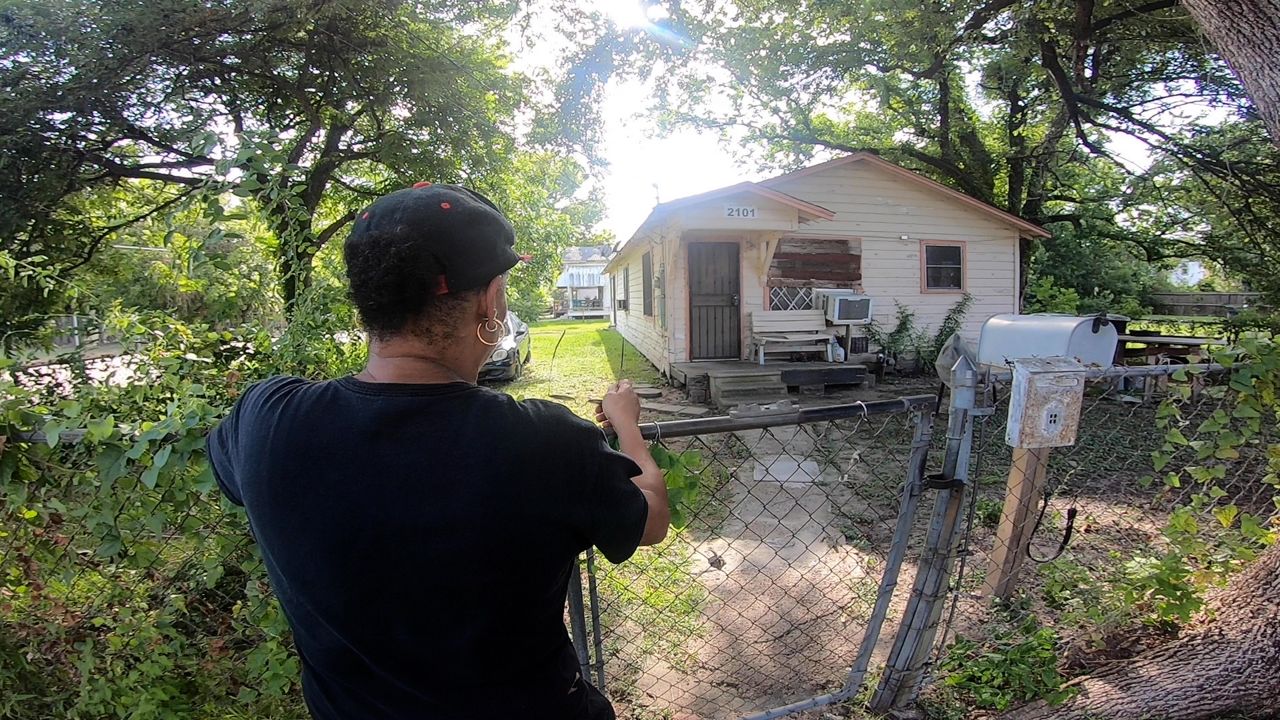HOUSTON — Houstonian and community advocate Pamela Matthews has lived in this Fifth Ward/Kashmere Gardens neighborhood since 1972. She says uprooting would be devastating to her.
“My kids grew up around here, I did, grandkids — this is our homestead,” Matthews said. “Brings back a lot of good memories. This is all we have, this is all we know. We invested all we had in this place."
But for Matthews, an ovarian cancer survivor who lost her mother and may soon lose her brother to cancer, that investment has come at a price.
“The wooden blocks on the train tracks, they were treating them in this particular yard right here,” Matthews said.
A former plant acquired by Union Pacific Railroad in the late 1990s is now an area of contamination that has led to years of questions from residents in the northeast Houston neighborhood. Now, there are some concerning answers.

The City of Houston says Health Department and EPA soil and attic testing have linked creosote and cancer-causing dioxins to more than 100 homes sitting on a chemical plume around the rail yard. The lack of safe treatment of these toxins resulted in cancer clusters that have ravaged the long-standing Black and Latino neighborhood.
“We want justice,” Matthews said. “You can’t bring these people back that are passed on. If you could, I’d take that instead.”
Matthews and fellow resident Sandra Edwards are using their voices to fight back. Many have begun the litigation process, with several lawsuits citing damages underway against the railroad company.
“What I want them to do is clean my neighborhood up,” Edwards said. “Tear my house down, bring me some dirt and buy me a new house.”
While some will fight to stay knowing the risks, Houston Mayor Sylvester Turner wants to give homeowners a choice. Growing up in the area and as a fellow cancer survivor, he’s putting together an approximately $25 million strike force alongside city health, housing and development members to help residents move to if they so choose.

“There were 79 more cases of cancer in this small area than expected,” Mayor Turner said. “Time is the enemy of people living in the highly exposed dangerous zone with limited means to do anything else.”
The mayor says the city expects Union Pacific to play its part in this process; although, at the moment, many chide the billion-dollar company for dragging its feet. In a statement to Spectrum News 1 Texas, UPRR said it's been actively involved in remediation efforts since it acquired the property in 1997. However, it requires more testing to make informed decisions on next steps required to protect the community.
While all parties wait for the causality to be decided at a judicial level, the City of Houston is moving forward and many residents hope to finally see a solution to this decades-long problem.
“We want a safe environment to live in, period,” Matthews said.




